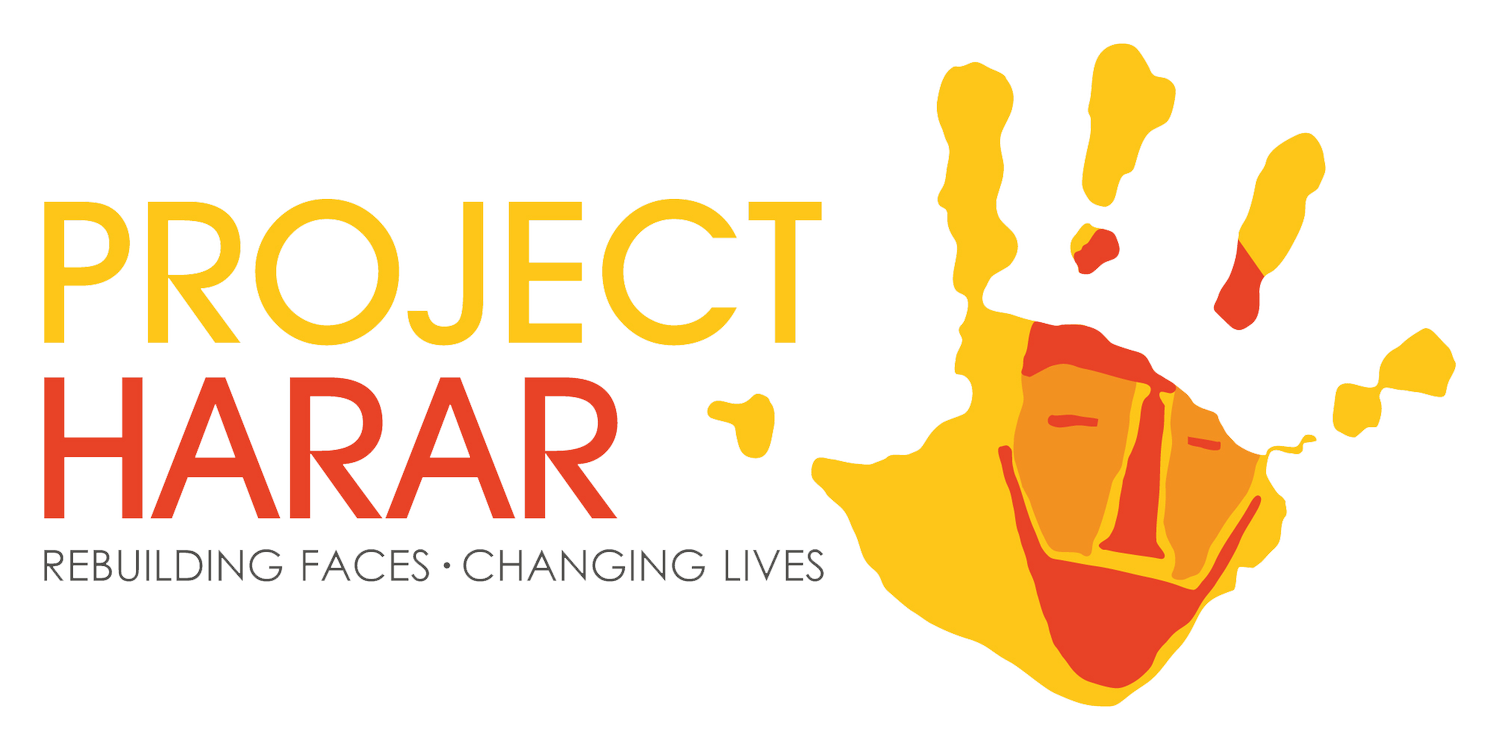ABEL’S STORY
Abel and his mother before his surgery.
Abel came to our recent programme in SNNPR, where he received surgery for his cleft lip and palate. The family travelled from Oromia boarder to Arbaminch after hearing from a local doctor that Project Harar could provide Abel with free surgery.
Abel’s mother was studying at school when she fell pregnant with him, however, she had to drop out when he was born to take care of him. When speaking to one of our programme officers she explained that she had “hoped to go back to school once she gave birth...But as my son needs special care I thought I will never achieve my dream of going back to school.”
In rural areas of Ethiopia there is often a lack of awareness surrounding facial disfigurements, with many people being unaware what a cleft lip and/or palate is and that they are treatable conditions. This can leave families of children born with cleft conditions feeling both scared and helpless. Abel’s mother recalls that “When he was first born and the doctor gave him to me I was so scared I cried because I did not know what was going on.” Luckily the doctor was able to calm her down and explained that he would be able to have a simple surgery to correct both his cleft lip and palate. An early diagnosis, such as Abel’s, can have life-changing effects on not just the child but also the whole family.
Many children who are born with a cleft lip and palate struggle with breastfeeding, Abel’s mother explained her own experience “feeding him was very challenging at first as he had both cleft lips and plate. The milk comes back through his nose most of the time and I was always worried something bad will happen to him.” Difficulty with breastfeeding can cause children to become dangerously undernourished, making them higher risk to disease and infection, as well as causing barriers for their physical development.
Abel a couple hours after surgery.
"I am very happy he is getting the surgery at a young age and he will be able to go to school without worrying what other children will say to him so thank you very much for all you are doing to help us.”
Equally, due to stigma surrounding facial disfigurements, children with cleft conditions are often isolated from society and are unable to attend school or childcare. This has detrimental effects on not just the child’s development but can also significantly affect the prospects of the whole family. In the case of Abel, his mother feared that she would never be able to return to school as no one would look after her son. However, since he has had surgery she feels confident that she will be able to return to school without having to worry about her son. She hopes that when Abel is older he to will attend school and he will not have to worry about ”what other children will say”.
Abel and his mother’s story highlights how cleft conditions not only affect the child, but also those around them. When a child is provided with cleft treatment, you not only change their lives, giving them a chance at a happy and hopeful future, you also touch the lives of so many others. Abel’s surgery now means that his mother will be able to return to school and finish her education, enabling her to provide for her family and give back to her community.
Abel’s smile journey also shows the importance of awareness raising and training for community health workers across Ethiopia. The doctors ability to diagnose him with cleft lip and palate at birth and provide reassurance that it could be fixed with surgery, enabled his mother to get him treatment at only 4 months old. The earlier the corrective surgery is completed, the less health and social developmental barriers will be experienced.
Abel and his mother after surgery.




